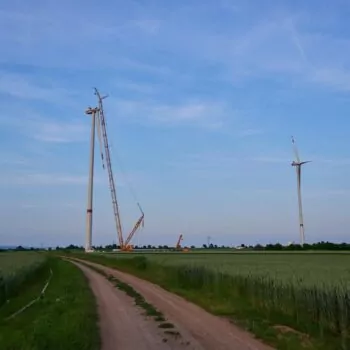The world’s energy system is undergoing a transformation. Last year, renewable energy became the largest source of installed capacity in the world; and Bloomberg Energy Finance estimates that by 2040 electric vehicles are going to account for 35% of car sales. Furthermore, the CFO of Shell has stated that he expects oil demand to peak before oil supply, with this occurring within 5-15 years’ time. This undoubtedly will have implications for the oil market.
The expansion of clean energy and transport is only set to ramp up following the international Paris Agreement on climate change’s entry into force. In this global agreement governments decided to limit global temperatures to well under 2°C, and to strive for 1.5°C, aiming for net zero global emissions of greenhouse gases (GHG) in the second half of the century.
Oil producing countries in Latin America are already feeling the pinch
The drop in the oil price has already been felt by oil producing countries in Latin America, with both exports and fiscal balances being affected. A country’s exposure to the changing oil market is a function of both the strength of its non-oil related industries and its position on the oil production cost curve. The relative effects are determined by the level of oil dependency which varies across Latin America. Venezuela is the most vulnerable to external shocks; crude accounts for 95% of its total exports, nearly half of its total fiscal revenues and acts as a major source of foreign exchange. Whilst less vulnerable than Venezuela Ecuador, Colombia, and Mexico have not escaped unscathed from the falling oil price.
At present, the decline in Latin American oil revenues has principally been a function of supply and demand in the oil markets. However, the Paris Agreement on climate change may introduce another factor into the oil price equation, which might have a disproportionate impact on Latin American oil exporters.
Technological innovation, efforts to avoid dangerous climate change and action to reduce air pollution will lead to the suppression of global demand for crude oil. These changes could manifest as taxes or regulations – including carbon price instruments – and will benefit alternative low-carbon energy sources. Norway for example, has already announced this year it’s aim to completely ban petrol powered cars by 2025. In turn, this implies that only the oil producers with the lowest cost base will be able to continue production on an economically viable basis.
This is particularly critical for oil producing countries in Latin America, as the majority of both their current oil production and their oil reserves are made of heavy crude oil. Turning heavy crude oil into usable oil products is an energy intensive activity that requires large industrial facilities and significant investments. Any carbon price regimes in individual countries and/or tighter climate regulations would likely discriminate against heavy crude – as well as other energy-intensive forms of oil extraction such as tar sands – to the benefit of lighter crude such as that found in Saudi Arabia. Indeed, even under the current regime, with no carbon pricing, Latin America’s heavy crude already lags behind other types of oil on the industry cost curves.
Oil’s lack of competitiveness
Given the likely conditions for the oil market in Latin America – compounded by climate policy – stranded assets are a probability. It is therefore high time to get the right set of policies to make the transition away from reliance on oil exports. As the economic risks for oil producers rise, financing investments will be more challenging. Furthermore, the New Climate Economy report estimates that to transform the energy sector investment in oil, coal and gas must decrease by about one-third by 2030 to keep global average temperature rises below 2°C; under this regime it is difficult to justify further investments in heavy crude oil extraction.
Reliance on fossil fuels is not a sustainable engine for the economy in the 21st century. However, Latin American countries may find that production decisions are determined for them as their high costs make production uncompetitive. This has clear policy implications. Oil production and refining in many Latin American countries is dominated by state oil companies; thus the government is doubly exposed to a market where heavy crude is no longer competitive. From the standpoint of individual governments, privatising oil production to limit their fiscal exposure may make sense. What certainly is the case is that further investment in refining capacity focus on processing heavy crude would appear to be at odds with the wider thrust of the Paris Agreement that all Latin American countries have signed up to.
There are many good reasons to diversify an economy away from fossil fuel exports, including those which have little to do with either climate change or the dynamics of the oil market. However, the combination of these two factors means that oil production in Latin America is likely to feel the effects of the energy revolution underpinned by the Paris Agreement faster than the industry realises.


